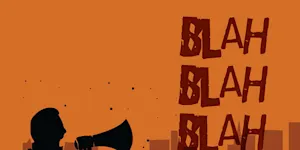What Makes This Word Tick
"Empirical" is the sort of word that might show up in a scientific discussion or a conversation at a book club. It refers to information or conclusions based on observation or experience rather than theory alone. Picture a detective piecing together clues by studying the evidence directly, rather than relying solely on hunches.
If Empirical Were a Person…
Empirical would be that friend who insists on reading the reviews before trying a new restaurant and wouldn't buy a new gadget without first testing it in the store. Utterly practical, perhaps wearing glasses perched on the end of their nose as they sift through accumulated data with a discerning eye.
How This Word Has Changed Over Time
Interestingly, "empirical" hasn't strayed far from its roots. Originating from the late Latin "empiricus," the word has long emphasized learning through direct experience. Over time, it has cemented itself as a cornerstone of scientific jargon, maintaining its dedication to observable evidence.
Old Sayings and Proverbs That Use Empirical
While "empirical" might not feature prominently in classic proverbs, the essence is alive in sayings like "seeing is believing." It's the challenge to theories unsupported by experience that rings true to the empirical spirit.
Surprising Facts About Empirical
Did you know that empirical methods are at the heart of the scientific method itself? Scientists are steadfast in their quest to understand the world through observable, measurable phenomena. This dedication has led to incredible breakthroughs in medicine, technology, and beyond.
Out and About With This Word
You'll often encounter "empirical" in academic journals, research papers, and intellectual debates. It's not the kind of word usually found in small talk at the grocery store but is a stalwart in shaping educated opinions and grounded decisions.
Pop Culture Moments Where Empirical Was Used
In the TV series "The Big Bang Theory," where scientific banter is as common as comic book references, "empirical" would feel right at home. The term frequently pops up in any storyline centered on proving hypotheses or challenging pseudoscience.
The Word in Literature
In literature, "empirical" largely resides in non-fiction works—biographies, scientific articles, and history books where the reliance on tangible evidence is revered. It's a favorite among authors who insist on grounding their narratives in reality.
Moments in History with Empirical
The Age of Enlightenment could be considered the golden era of the empirical approach, as thinkers began turning away from traditional doctrines. During this time, figures like Isaac Newton changed the world through observations and experiments.
This Word Around the World
In German, "empirisch" also conveys reliance on observation or experience, while in French, it's "empirique." Despite the language, the commitment to experiential learning is a global phenomenon, respected across cultures.
Where Does It Come From?
"Empirical" traces back to the Greek word "empeiria," which means experience. The trail of etymology reveals its longstanding relationship with practical knowledge and observations—the foundation of the word’s defining essence.
How People Misuse This Word
Sometimes folks might mistakenly use "empirical" as a synonym for "theoretical," but it's quite the opposite! Empirical evidence is concrete and based on hard facts, rather than a hypothesis or supposition.
Words It’s Often Confused With
Theoretical: While they often appear together, "theoretical" is about abstract ideas, unlike hard evidence.
Hypothetical: Like "theoretical," it deals with speculative notions, not observed realities.
Analytical: A process of logical reasoning, not necessarily grounded in empirical evidence.
Additional Synonyms and Antonyms
Synonyms you might see include "observational" and "factual." Antonyms would be "theoretical," "unproven," and "hypothetical," highlighting the contrast between evidence-based and conjectural.
Want to Try It Out in a Sentence?
"A scientist relies on empirical evidence to substantiate their hypotheses, while a philosopher may entertain more speculative ideas."
















